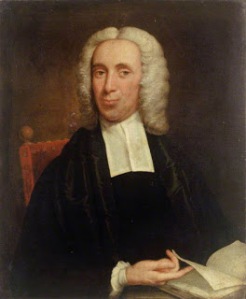Faith vs. Unbelief — The key to finding your miracle.
There is a poignant scene in the gospel of Mark when Jairus, one of the synagogue officials, fell at Jesus’ feet and begged that Jesus would come and lay His hands on his daughter, who was near death. Immediately, of course, Jesus went off with the grief stricken man and a great multitude traveled with them. In this mass of people was the woman who had had a hemorrhage for 12 years. She reached out, with faith, and touched the “hem of His garment” and was instantly healed!
The moving part of this story happens next, as, in the intervening time, the little girl has now died! You and I both know it is one thing to ask Jesus for healing but quite another to ask for resurrection.
While He was still speaking, they came from the house of the synagogue official, saying, “Your daughter has died; why trouble the Teacher anymore?” But Jesus, overhearing what was being spoken, said to the synagogue official, “Do not be afraid any longer, only believe.” (Mk 5:35-36)
I love what Jesus did to keep faith alive, and unbelief out, in the heart of Jairus. We can’t believe that He “overheard what was being spoken” for Himself. He refused to listen to the report of the little girl’s death for the father’s sake, for Jairus!
The NASB Bible says Jesus was “overhearing what was being spoken”. The word in Greek for “overhearing” is parakouo. It is a word used only 3 times in the NT, and means to mishear, (by implication) to disobey — neglect to hear. The other use of this word brings this out more clearly:
“If he refuses to listen [parakousē] to them, tell it to the church; and if he refuses to listen [parakousē] even to the church, let him be to you as a Gentile and a tax collector. (Mtt 18:17 NASB)
Jesus refused to listen to — or better said He neglected to even hear — the report of her death and sought to strength Jairus in his faith walk: “Do not be afraid any longer, only believe.” By keeping faith alive in the heart of Jairus and by purposefully refusing to hear a bad report, Jesus kept unbelief out as well. Jesus knew that the little girl would arise! He needed Jairus to keep on believing for the miracle to take place.
“Because of your unbelief”
Remember when the disciples asked Jesus privately why they couldn’t cast the evil spirit out of the young boy? (Mtt 17:19) Jesus didn’t say that they didn’t have enough faith; He said that they had too much unbelief! In a show of good faith they had made the attempt to drive out the demon in the boy and had seen success before in their other efforts. But this time they failed!
Jesus pointed to their unbelief, possibly stemming from the great (physical) disturbances the demon was producing in the boy – such as foaming at the mouth, slamming him to the ground and leaving him there stiff, or throwing the boy into the fire or water to kill himself!
Jesus said unto them, “Because of your unbelief: for verily I say unto you, If ye have faith as a grain of mustard seed, ye shall say unto this mountain, Remove hence to yonder place; and it shall remove; and nothing shall be impossible unto you.” (Mtt 17:20 KJB)
Jesus declares that the issue isn’t a lack of faith; He even tells them that if they had just a “little faith” that would do – the faith of a mustard seed. It was an unbelief issue, a doubt-in-their-hearts issue. Tragically, we in the western church have been told that it was their faith that was too small: “Because of the littleness of your faith.” (NIV, NASB, Holman). This is a poor translation and really points us in the wrong direction. We beat ourselves over the head trying to produce MORE FAITH and forget about the unbelief running rampant in our hearts.
To help you see this I offer this commentary:
The Revised Version adopts the reading, “little faith”, in accordance with the best authorities; but it looks like a softening of the original term “unbelief,” which corresponds better with Christ’s own censure, “O faithless generation.” Mtt 17:17 (Pulpit Commentary)
“Faith comes by hearing” and so does unbelief – you need to get this! It comes from us hearing (and fixating on) the report that the little girl is dead! Unbelief comes from listening to the tests and clinical reports of the Doctors, who I might add, are paid to give us the worst case scenarios. (If you doubt that one just ask my wife!) Actually, unbelief is crouching at our front door everyday through media, neighbors and even well-meaning Believers.
You might be asking, “Jeff, what difference does it make for me personally whether my translation reads ‘little faith’ or ‘unbelief’?” Well, it matters hugely when it comes to the practical application in our own lives while we are praying and believing for healing, for ourselves or a loved one. The things we think upon, focus on, mediate upon, listen to and speak out can either grow our faith or grow our unbelief.
Do I meditate upon the facts of my illness, the predictions of the doctors or the truth of the Word of God? Can we put our faith to work in the things the Spirit whispers to us, even if they might stand in total opposition to reason? Do I listen to the negative report of the “men coming from Jairus’ house” or do I stubbornly say to my heart “Do not be afraid, only believe”?
The difference seems small but in my understanding it is enormous. Here’s to great faith and less and less unbelief! AMEN.
Jeff Gilbertson
Thy Will Be Done: Sickness, Faith, and the God Who Heals
 When Jesus performed signs and wonders, he was proclaiming the gospel against suffering… We must not one-sidedly emphasize the cross and forgiveness, while ignoring the resurrection and the overcoming of our misery [through healing and deliverance]. It is Satan’s trick to try and make us waver so that the Savior does not receive a full and complete hearing… There were times when very few sinners came, only sick people. And Jesus welcomed them all. Oh, that the nations would hear the good news! That the sick would come, and that sinners would come – all are welcome! (Christoph Friedrich Blumhardt)
When Jesus performed signs and wonders, he was proclaiming the gospel against suffering… We must not one-sidedly emphasize the cross and forgiveness, while ignoring the resurrection and the overcoming of our misery [through healing and deliverance]. It is Satan’s trick to try and make us waver so that the Savior does not receive a full and complete hearing… There were times when very few sinners came, only sick people. And Jesus welcomed them all. Oh, that the nations would hear the good news! That the sick would come, and that sinners would come – all are welcome! (Christoph Friedrich Blumhardt)
Compassion sees only the need of others; it omits all criticism and judging. Jesus never gave the sick a sermon first, or first examined their inner condition; he never asked them what sins they might have committed to merit this sickness. This would not only have been harsh but would have hurt the sick even more.
Why then are we so quick to judge the sick, examining them to find out whether they are remorseful enough or worth praying for? Jesus said, “Whoever comes to me, I will not reject.” This is why it is always wrong to think that illness is “a blessing in disguise.” What is more beneficial for us – sickness or health? The Savior certainly did not think that the sick were better off than the healthy, otherwise he would not have healed or bid his disciples to heal the sick. (Johann Christoph Blumhardt)
Jesus went around doing good and healing all who were under the power of the devil, because God was with him. (Acts 10:38)
Jesus did not use or require any formalities when people came to him for help. With one word help was there. He also did not withdraw somewhere, in a high and mighty way, and wait for people to come and ask for help. He went around and came to all those who were miserable and desolate, those suffering in body and soul, and called to them, “Come to me, all you who are weary and burdened, and I will give you rest” (Matt. 11:28). He offered himself as the Savior who would help those whom no one else would help.
Has he changed any? Certainly not! He traveled from place to place doing good and healing just so that all subsequent generations could trust him, and so that all who are miserable and afflicted might always know where to turn for help. Jesus still does wonderful things, “going around doing good and healing,” even if it is in a more inconspicuous way. He draws close to anyone in need and pain so that we, too, might experience firsthand that he is the one who knows how to help us. Still today Jesus works good and heals. The question to us is: Will we come to him? (Johann Christoph Blumhardt)
The enemy often wreaks havoc on our feelings; but he can’t touch your faith. The devil cannot own your faith – unless you give in. Sometimes you will feel that you have no faith,and yet deep down you still believe. Believe then in your faith. Things will get better. Christ is there, even if he is somewhat hidden. Don’t even be afraid of hell – he is there too. Anyone who sighs and longs will not be lost. It is for our sake that the Lord reveals his glory. Remember, the Savior intercedes on our behalf (Rom. 8:34) and cannot help but intervene with his assistance if you have a longing in your heart. (Johann Christoph Blumhardt)
Proclaim the kingdom of God AND perform healing.
And He called the twelve together, and gave them power and authority over all the demons and to heal diseases. And He sent them out to proclaim the kingdom of God and to perform healing. (Luke 9:1-2)
“Jesus while He was upon the earth healed the sick and raised the dead, not merely to typify a spiritual healing and quickening, but to prove that He was indeed the promised Deliverer by destroying the works of the devil, and also to give a fore-taste and a shadow of the ultimate effect of His redemption upon the whole man, body and soul.
And thus we find in the New Testament that the healing of the sick and the preaching of the Gospel of the Kingdom are almost always co-joined, and are so spoken of as though they meant the same thing.” (Thos Erskine; Brazen Serpent, p. 272)
My fellow “7th trumpet rapturist” – Isaac Watts.
Then the seventh angel sounded; and there were loud voices in heaven, saying, “The kingdom of the world has become the kingdom of our Lord and of His Christ; and He will reign forever and ever.” (Rev. 11:15)
Fellow believers rarely believe me when I tell them that I am a “7th trumpet rapturist”. This comes from the book of Revelation. Actually, you will be convinced yourself if you read chapters 10-11 in succession. You can imagine how blessed I was when I came upon this hymn by Isaac Watts (d. 1748) “Let The Seventh Angel Sound On High”.
Watts was credited with some 650 hymns. Of course you have heard of “Joy to the World” and “When I Survey the Wondrous Cross”. Most people don’t know it but Watts wrote the words of “Joy to the World” (taken from Psalm 98) as a hymn glorifying Christ’s triumphant return at the end of the age! Can I ask you with this thought in mind to read this hymn and then read Revelation 10-11?
In Him,
Jeff Gilbertson
Let The Seventh Angel Sound On High
Let shouts be heard through all the sky;
Kings of the earth, with glad accord,
Give up your kingdoms to the Lord.Almighty God, Thy power assume,
Who wast, and art, and art to come:
Jesus, the Lamb who once was slain,
Forever live, forever reign!The angry nations fret and roar,
That they can slay the saints no more
On wings of vengeance flies our God,
To pay the long arrears of blood.Now must the rising dead appear;
Now the decisive sentence hear;
Now the dear martyrs of the Lord
Receive an infinite reward.
Wherever the apostles walked there was healing.

“I do not possess silver and gold, but what I do have I give to you: In the name of Jesus Christ the Nazarene—walk!”
(Edwin Robertson)
Satan has ever been seeking to thwart God by imitation.
 When Aaron wrought wonders with his rod “they also did in like manner with their enchantments.” Miracle was matched by miracle, and wonder by wonder, up to the point where God triumphed by confounding the deceivers.
When Aaron wrought wonders with his rod “they also did in like manner with their enchantments.” Miracle was matched by miracle, and wonder by wonder, up to the point where God triumphed by confounding the deceivers.
So has it been with the Church of Christ all through her history. Satan has ever been seeking to thwart God by imitation rather than by denial… He will approach as near the truth as possible, and still keep to his lie…Let us not abandon our wheat field because the devil has sowed tares in it. The fact that he sows tares, is his testimony to the genuineness of the wheat.
(A. J. Gordon)
Thy Kingdom Come. (period)
Many know that “Jesus wept.” is the shortest sentence in the Bible. What most believers don’t take too seriously is that “Thy Kingdom Come.” is a close second. But at the same time, where people recognize the period (.) in “Jesus wept.” the body of Christ seems to read right through the period of “Thy Kingdom Come.” giving the prayer a very altered and indiscriminate or arbitrary meaning. Yet the Bible means what is says and says what it means; even if it is just a “period”. This might seem like a small point but it has huge ramifications.

But before we proceed, let’s read that phrase in its context:
It happened that while Jesus was praying in a certain place, after He had finished, one of His disciples said to Him, “Lord, teach us to pray just as John also taught his disciples.” And He said to them, “When you pray, say: ‘Father, hallowed be Your name. Your kingdom come. Give us each day our daily bread. And forgive us our sins, For we ourselves also forgive everyone who is indebted to us.’‘” (Luke 11:1-4)
Here in Luke’s version of the Lord’s Prayer we can clearly see that “Your kingdom come.” is left to stand on its own as a complete thought and confined to a single sentence. In actual fact, in Luke there is NO following mention of “Your will be done on earth as it is in heaven.” as we find in Matthew. This makes it clear that the phrase “Thy Kingdom Come.” is an eschatological prayer! Our eyes and our prayers were to be focused on the future, on the return of the King and His kingdom!
For a collaborating view on this point I offer this from the Pulpit Commentary, one of the largest exhaustive Bible commentaries ever published:
“Thy kingdom come.” It is the prayer for the end, when there will be no more tears and partings, no more sorrow and sin. It tells of the same feeling which John, at the close of the Revelation, expressed in “Even so, come, Lord Jesus.”
“What’s the big deal?” is what you probably are asking! Well, it is a big deal when we read through the “period” and incorporate the prayer for the coming Millennial Kingdom and skip back in time to the present day and include, in the same breath (which makes the two thoughts equal) “Your will be done, on earth as it is in heaven.”
In actual practice by the church, then, our pray becomes morphed into “O God, let your kingdom come on earth as it is in heaven…” which, while maybe not unbiblical, is at odds with what Christ taught us and contrary to the truth. I believe each and every time this happens the church suffers.
This is a hard argument to try and convey so I am deferring to another classical teacher of a more distant age, J.C. Ryle, to put into words this important truth:
Perhaps no part of Scripture is so well known as this. Its words are familiar wherever Christianity is found. Thousands, and tens of thousands, who never saw a Bible or heard the pure Gospel are acquainted with the “Our Father”…
“Thy kingdom come.” By His kingdom we mean, first, the kingdom of grace which God sets up and maintains in the hearts of all living members of Christ by his Spirit and Word. But we mean chiefly the kingdom of glory which shall one day be set up when Jesus shall come the second time, and “all shall know me, from the least to the greatest” (Heb. 8:11 ). This is the time when sin, and sorrow and Satan shall be cast out of the world. It is the time when the Jews shall be converted, and the fullness of the Gentiles shall come in (Rom. 11:25), and a time that is above all things to be desired. (Expository Thoughts on Matthew, John C. Ryle, 1816-1900)
The Kingdom is here and is yet to come in its fullness at the Second Coming d Christ. Countless books have been written on this theme… But still I feel compelled to ask: Can we not join with the thoughts and desires of Jesus when He taught His disciples to pray the simple request “Your Kingdom Come.”?
Pray it with fervor and anxious longing. Pray it everyday. Pray it until He comes again in glory!
Yours for the Coming King,
Jeff G.
Emperor Constantine’s negative impact on the healing power of Jesus.
If now, as we have indicated elsewhere, the miracles were signs of the sole kingship of the living and exalted Christ, and pledges of His coming again to subdue all things to Himself, it is not strange that as the substance of these truths faded from men’s minds, their sign should have gradually disappeared also…
It is not altogether strange, therefore, that when the Church forgot that “her citizenship is in heaven,” and began to establish herself in luxury and splendor on earth, she should cease to exhibit the supernatural gifts of heaven. And there is a grim irony in the fact, that after death and the grave had gradually become the goal of the Christian’s hope, instead of the personal coming of Christ, then we should begin to find miracles of healing alleged by means of contact with the bones of dead saints and martyrs, instead of miracles of healing through the prayer of faith offered to the living Christ. Such is the change introduced by the age of Constantine.
(A.J. GORDON Ministry of Healing)
Why healing is shrouded with fanaticism. (A. J. Gordon)
 Real, true-hearted and sincere disciples are afraid of [miracles] and inclined to push away with quick impatience, any mention of their possible occurrence in our time… Every truth needs the steadiness and equipoise [balance] which come from its being bound into harmony with all other truths.
Real, true-hearted and sincere disciples are afraid of [miracles] and inclined to push away with quick impatience, any mention of their possible occurrence in our time… Every truth needs the steadiness and equipoise [balance] which come from its being bound into harmony with all other truths.
If the Church, by her neglect or denial of any real doctrine of the faith, thrusts that doctrine out into isolation and contempt, thus compelling it to become the property of some special sect, she need not be surprised if it loses its balance. She has deprived it of the conserving influence which comes from contact and communion with other and central doctrines and so doomed it inevitably to irregular manifestations.
If the whole body of Christians had been faithful to such truths as that of the Second Coming of Christ, and scriptural holiness, for example, we probably should never have heard of the fanaticism of Adventism and perfectionism. Let a fragment be thrown off from the most orderly planet and it will whirl and rush through space till it is heated hot by its own momentum.
(A. J. Gordon, Ministry of Healing, 1882)
Why Satan doesn’t expose our “lack of signs” following the Gospel.
The Bible says, “These signs will follow them that believe.” And yet here is a Church holding this faith and unfollowed by these signs. The ready conclusion from this fact certainly is that the Bible is not true; and we might have expected that this argument would be much used by those who deny the Bible to be a divine revelation. But it has not been much urged; and why? The subtle enemy of man [Satan] saw that there was more danger to his own kingdom from the use of this weapon than advantage; it might have led to a result very different from that of disproving the divine authority of the Bible.
 There is another conclusion to which it might have led, and that is a lack of faith in the Church. And thus the pressing of this argument might have awakened the Church to a sense of her true condition; and this Satan fears more than the Bible, knowing that a church asleep is the most powerful weapon against the world, much more powerful than any infidel arguments.
There is another conclusion to which it might have led, and that is a lack of faith in the Church. And thus the pressing of this argument might have awakened the Church to a sense of her true condition; and this Satan fears more than the Bible, knowing that a church asleep is the most powerful weapon against the world, much more powerful than any infidel arguments.
(Brazen Serpent, Thomas Erskine, 1788-1870)



